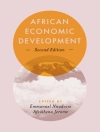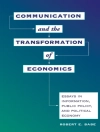This book provides instructors and students in entry-level interdisciplinary courses and thematic programs with a comprehensive introduction to interdisciplinary studies. Authors Allen F. Repko, Rick Szostak, and Michelle Phillips Buchberger introduce students to the cognitive process that interdisciplinarians use to approach complex problems and eventually arrive at more comprehensive understandings of them. Students learn how to think like interdisciplinarians, understand interdisciplinary processes, and assess the quality of their own work. Changes to the Fourth Edition include revised content on epistemology and methods, more on integrative strategies, reordering of some chapters, new assignment ideas, and new examples which include student examples and insights from the latest scholarly works.
Tabella dei contenuti
Preface
About the Authors
Part I: Understanding Interdisciplinary Studies
Chapter 1: Interdisciplinary Studies in the Real World
Why Interdisciplinary Studies Matters
What Is Driving Interdisciplinary Studies Today?
The Academic Benefits of Pursuing an Interdisciplinary Studies Degree
Interdisciplinary Studies and Your Career Development
A Threaded Example: Basic Income
Critical Thinking Questions
Applications and Exercises
Chapter 2: The Rise of the Modern Disciplines and Interdisciplinarity
Why the Past Matters
The Rise of the Modern Disciplines
The Rise of Interdisciplinarity
Interdisciplinarity’s Criticism of the Disciplines
Revisiting the Basic Income
Critical Thinking Questions
Applications and Exercises
Chapter 3: Interdisciplinary Studies Defined
Why Definitions Matter
Defining Interdisciplinary Studies
Differences Between Disciplinarity, Multidisciplinarity, Interdisciplinarity, and Transdisciplinarity
Two Conceptions of Interdisciplinarity
Useful Metaphors of Interdisciplinary Studies
Basic Income Revisited
Critical Thinking Questions
Applications and Exercises
Chapter 4: Academic Disciplines
Disciplines and Disciplinarity Defined
The Epistemic, Social, and Organizational Dimensions of Disciplines
The Concept of Disciplinary Perspective
The Defining Elements of a Discipline
Typical Methods
Disciplinary Perspective and Basic Income
Critical Thinking Questions
Applications and Exercises
Chapter 5: The Intellectual Essence of Interdisciplinary Studies
Assumptions of Interdisciplinary Studies
Theories Supportive of Interdisciplinary Studies
Epistemology of Interdisciplinary Studies
How Interdisciplinary Studies “Sees”
Reflections on Basic Income
Critical Thinking Questions
Applications and Exercises
Part II: Thinking Critically About Interdisciplinary Studies
Chapter 6: The Interdisciplinary Studies “Cognitive Toolkit”
How She Did It
Intellectual Capacities
Values
Traits
Skills
Ethical Analysis
Ways to Apply Your Interdisciplinary “Toolkit”
Basic Income
A Recommended Assignment
Critical Thinking Questions
Applications and Exercises
Chapter 7: Thinking Critically About Disciplinary Perspectives
What It Means to Think Critically About Disciplinary Perspectives
Developing a Sophisticated Conception of Knowledge
Why Interrogate Disciplinary Perspectives (or Practice Critical Pluralism)
How Interdisciplinarians Interrogate Disciplinary Perspectives
Basic Income
Critical Thinking Scenario
Critical Thinking Questions
Applications and Exercises
Chapter 8: Thinking Critically About Disciplinary Insights
Critical Thinking Attitudes
Categories of Statements
Critically Analyzing Disciplinary Insights
Critical Thinking About Basic Income
Critical Thinking Questions
Applications and Exercises
Chapter 9: Thinking Critically About Integration and Its Results
Three Alternative Approaches to Interdisciplinary Integration
The Broad Model Approach to Integration
The Result of Integration
Reflecting on What Was Achieved
Integration and Basic Income
Critical Thinking Scenario
Critical Thinking Questions
Applications and Exercises
Part III: Interdisciplinary Research and Writing
Chapter 10: An Interdisciplinary Research “Road Map”
The Power and Usefulness of Research
Disciplinary and Interdisciplinary Approaches to Research
The Broad Model of the Interdisciplinary Research Process
STEP 1: Define the Problem or State the Research Question
STEP 2: Justify Using an Interdisciplinary Approach
Critical Thinking Questions
Applications and Exercises
Chapter 11: Identifying Relevant Disciplines and Gathering Information About the Problem
STEP 3: Identify Relevant Disciplines
STEP 4: Conduct a Literature Search
The Broad Model Rubric Applied to STEPS 3 and 4
Investigating Basic Income
Critical Thinking Questions
Critical Thinking Scenario
Chapter 12: Analyzing Insights and Reflecting on Process
Step 5: Critically Analyze the Disciplinary Insights Into the Problem
STEP 6: Reflect on How an Interdisciplinary Approach Has Enlarged Your Understanding of the Problem
Basic Income Revisited
Conclusion
Critical Thinking Questions
Appendix A Intellectual Autobiography
Appendix B Student Portfolios, Blogging, and Vlogging
Appendix C Service Learning, Internships, and Alternative Projects for Nontraditional Students
Appendix D The Broad Model Rubric: Instructor Version and Sample Student Outline
Appendix E Answer Key
Glossary of Key Terms
References
Circa l’autore
Michelle Phillips Buchberger, Ph D, is an assistant professor of integrative studies at Miami University. She previously proposed, developed and chaired the B.S. Interdisciplinary Studies program at Franklin University. She currently co-chairs the Alpha Iota Sigma international honors society for interdisciplinary studies and has presented and written on topics including teaching interdisciplinary studies online, working with nontraditional students, and creative thinking in interdisciplinary studies. She teaches several courses about interdisciplinarity, including theories and methods of interdisciplinary studies and integrative studies seminars, as well as Film Studies and Liberal Studies. She has a Ph D in English Literature, which she also teaches. She can be contacted at [email protected].












